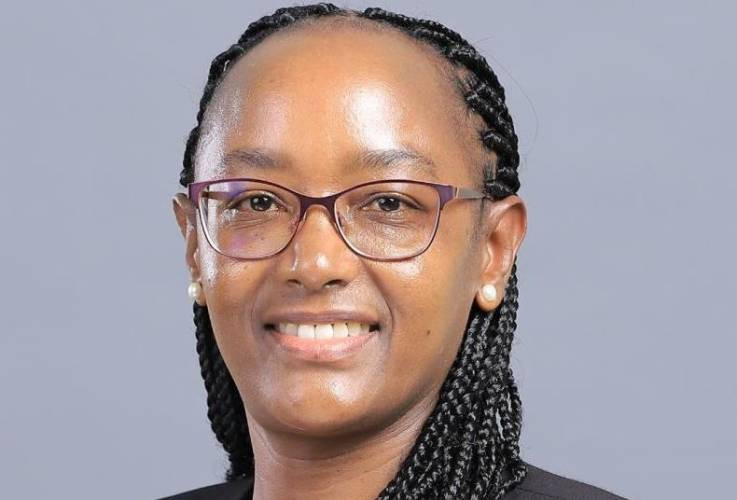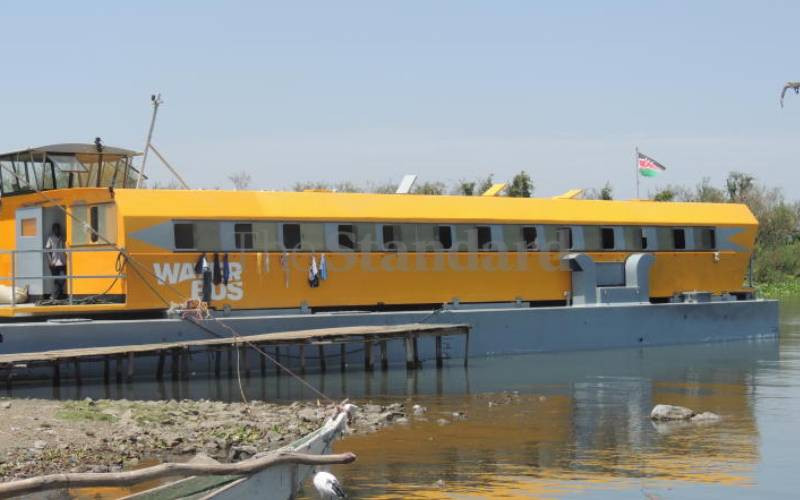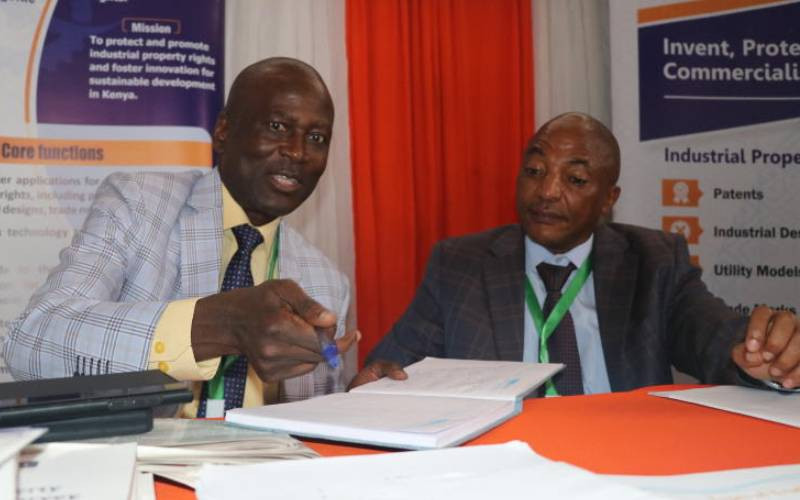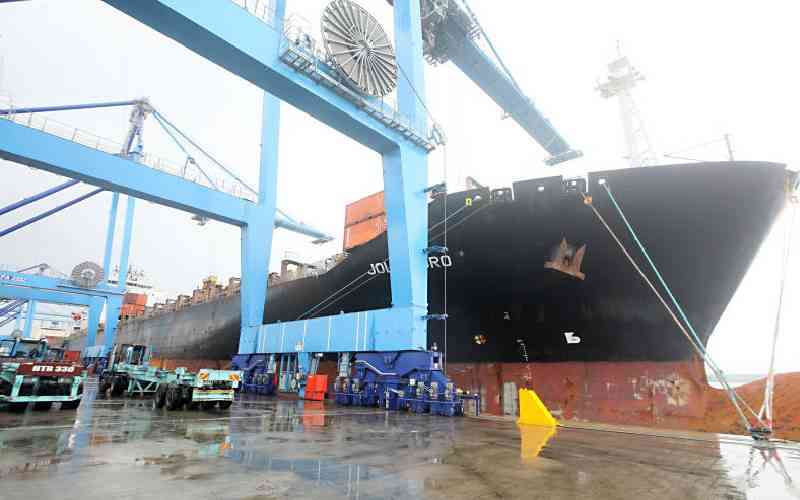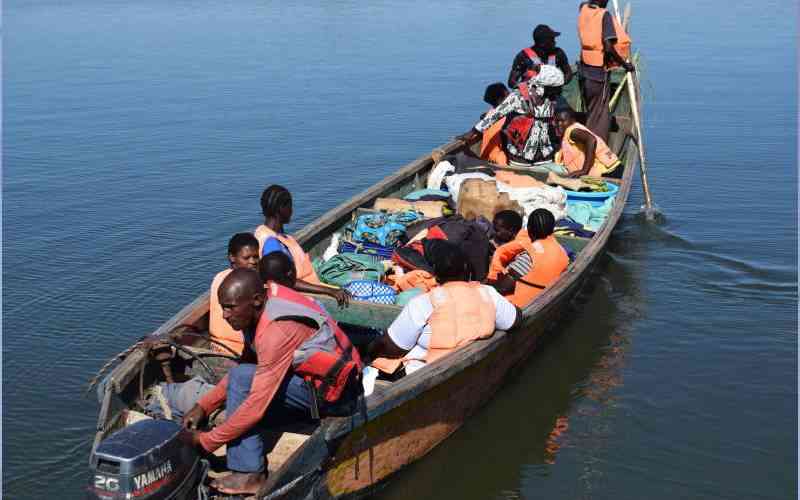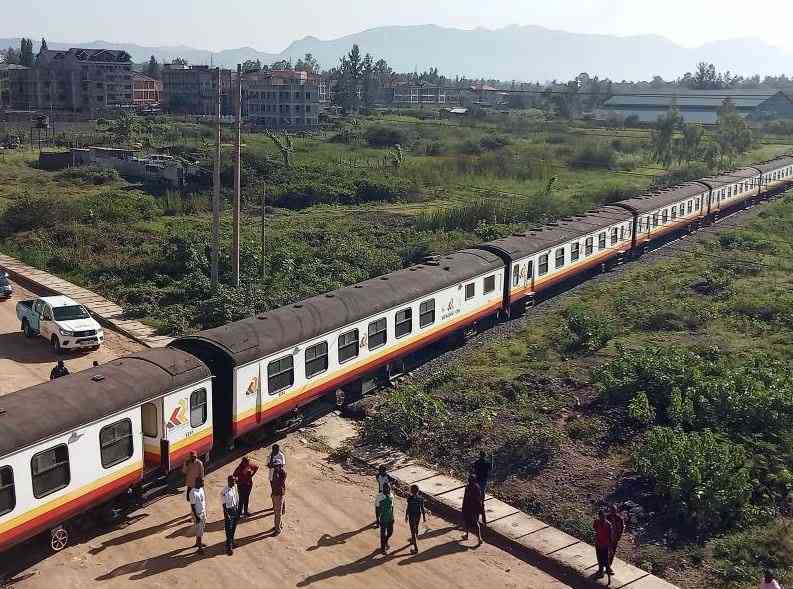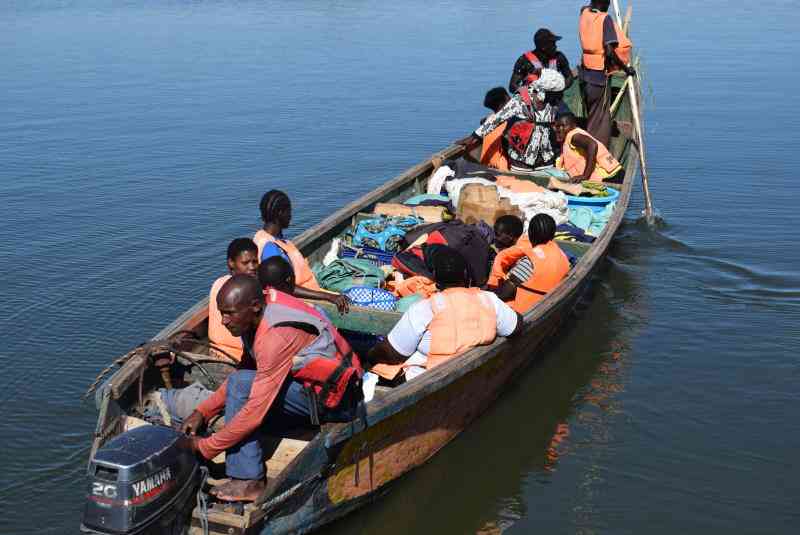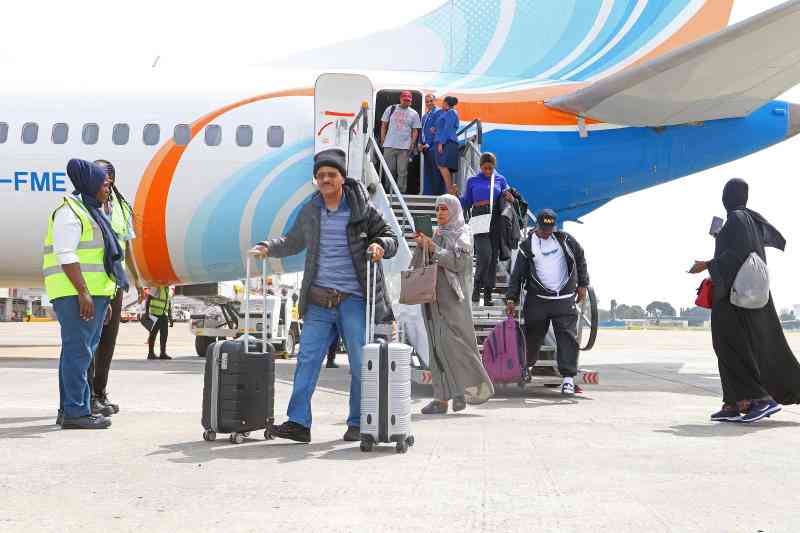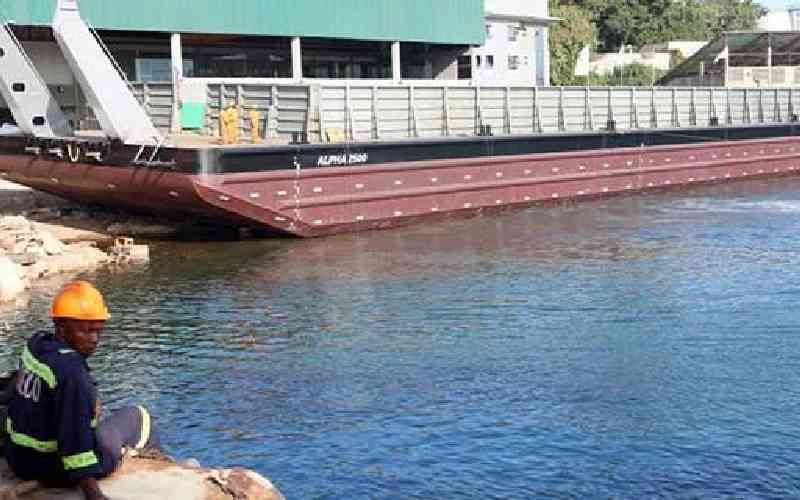
For the last 43 years, Kenya has been fantasizing, visualizing, imagining, even dreaming of owning a ship.
It has been a farfetched quest that none of the previous regimes has been able to fulfill. Kenya has watched enviably as other African countries build their own vessels, hoping that a day will come when it will achieve such a feat.
The last time the country came close to actualizing this dream was in 1980 when it floated under the aegis of the East African National Shipping Line (EANSL).
Now, Kenya has kicked off plans to revive the Kenya National Shipping Line (KNSL) which according to the Ministry of Maritime has the potential to create 6,000 jobs and contribute over sh300 billion annually to the economy.
The revival of KNSL is also expected to rekindle the nation's quest to own a ship
Early last month, the state said all imports and exports by ministries and other agencies would be exclusively cleared by KNSL. Salim Mvurya, the Cabinet Secretary for Mining, Blue Economy and Maritime, directed KNSL to take over the moribund Government Clearing Agency (GCA).
According to Mr Mvurya, this is to ring-fence business for KNSL so that it can achieve the quest to own ships like Ethiopia and Togo, which are landlocked nations.
After the collapse of EANSL in 1980, nine years late, Kenya, through the Merchant Shipping Act, took a bold step to form KNSL.
In 1997, the shareholding of KNSL was re-organised to bring into the fold a strategic partner, Mediterranean Shipping Company (MSC), through Heywood Shipping Co. Ltd as an additional shareholder.
Even as many look forward to Kenya owning its first ship, shipping experts are questioning KNLS's ability to purchase a vessel.
Ideally, according to maritime experts, KNSL does not even qualify to be called a shipping line because it does not own a vessel.
A shipping line according to experts, is a firm that owns ships. KNSL's prime function has for years remained to fill slots for other shipping lines as a consolidator.
Consolidators are establishments that source for Less container load (LCL) cargo to fill a single container, which a single source cannot fill.
"KNSL is a consolidator given that it does not own a vessel. The agency is relying on buying slots mainly for MSC, which ironically is its shareholder.
I can tell you that the dream of the country to own a ship is farfetched" said Kennedy Onyacha, a clearing and forwarding professional.
In 1967, Uganda, Kenya, Tanzania, and Zambia jointly formed the East African National Shipping Line (EANSL). EANSL, according to experts, thrashed about and made sure that it owned and operated four general cargo ships: the M.V 'Uganda', M.V 'Mulungushi', M.V 'Ujamaa', and M.V 'Harambee'.
EANSL, before its collapse in 1980, had acquired an additional two vessels: the M.V Jogoo and the M.V Jitegemee.
At the time, freight rates were high, and operating these vessels became increasingly uneconomical. Political interests hammered the last nail in the EANSL coffin.
The vacuum left by the demise of EANSL was filled by such foreign shipping lines as Clan Line, Harrison Line, Ellerman Line, British India Line, Lykes Lines and many others.
As containerisation gathered momentum globally, giant container ships, such as Maersk, Mediterranean Shipping Line, and Global Container Lines hit the East African shores.
Presently KNSL remains tight-lipped on its ability to float a ship.
Players in the industry opine that KNSL has turned out to be a clearing and forwarding firm and a consolidator.
However, for years an accusing finger has been pointed at the government chiefly due to its failure to give KNSL exclusive rights to handle government cargo.
A debate has raged for years about whether major exporters and importers like Kenya Tea Development Agency, (KTDA), Kenya Coffee Board and other government agencies should be compelled to use KNSL so that the latter can bring in some revenue.
"If KNSL could be assisted, believe me it can make more revenue for the government than even Kenya Ports Authority (KPA)," said Andrew Mwangua, a shipping expert.
 The Standard Group Plc is a multi-media organization with investments in media platforms spanning newspaper print
operations, television, radio broadcasting, digital and online services. The Standard Group is recognized as a
leading multi-media house in Kenya with a key influence in matters of national and international interest.
The Standard Group Plc is a multi-media organization with investments in media platforms spanning newspaper print
operations, television, radio broadcasting, digital and online services. The Standard Group is recognized as a
leading multi-media house in Kenya with a key influence in matters of national and international interest.

